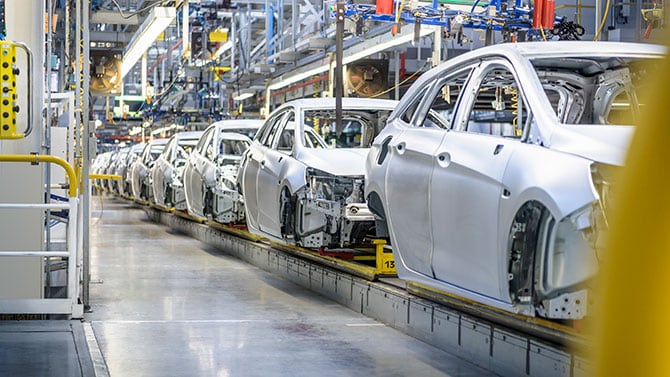Renewable energy has gained significant attention in recent years as societies strive to reduce their dependence on fossil fuels and mitigate the impacts of climate change. Alongside the environmental benefits, the promotion of renewable energy sources also presents an opportunity to address social equity issues.
Understanding Renewable Energy
Renewable energy refers to energy sources that are naturally replenished, such as solar, wind, hydro, and geothermal power. Unlike fossil fuels, which have finite reserves and contribute to environmental degradation, renewable energy offers a sustainable alternative. By harnessing these clean sources, societies can reduce greenhouse gas emissions, combat climate change, and create a more sustainable future.
The Importance of Social Equity
Social equity recognizes that fairness and justice should be integral to the distribution and benefits of renewable energy. It emphasizes the need to ensure that all individuals, regardless of their socioeconomic status, race, or location, have equal opportunities to access and benefit from renewable energy resources. Social equity strives to address historical and systemic disparities that have marginalized certain communities, ensuring that the transition to renewable energy is inclusive and just.
Renewable Energy and Access to Energy
One of the fundamental aspects of social equity in renewable energy is ensuring universal access to clean and affordable energy. Many communities, especially in developing regions or marginalized areas, lack access to reliable electricity. By expanding renewable energy infrastructure, such as off-grid solar systems or community-based wind farms, these underserved populations can access clean energy, improving their quality of life, and enabling socioeconomic development.
Job Creation and Economic Opportunities
The transition to renewable energy presents significant opportunities for job creation and economic growth. As the renewable energy sector expands, it requires a diverse workforce skilled in areas such as engineering, construction, manufacturing, and maintenance. By investing in workforce development programs and promoting inclusive hiring practices, renewable energy projects can provide employment opportunities for local communities, particularly those that have been historically disadvantaged.
Health and Environmental Justice
Renewable energy sources have the potential to improve public health and address environmental justice concerns. Fossil fuel-based power generation contributes to air pollution and adverse health effects, disproportionately affecting low-income communities and communities of color. By transitioning to renewable energy, these health disparities can be reduced, creating cleaner environments and improving overall well-being in vulnerable communities.
Community Engagement and Decision-making
To ensure social equity in renewable energy, it is crucial to involve communities in decision-making processes. Engaging with local stakeholders, including community leaders, residents, and organizations, fosters a sense of ownership and ensures that projects meet the specific needs of the community. Collaborative approaches that include community input from the planning stage to the implementation phase can lead to better project outcomes and increased acceptance.
Education and Empowerment
Promoting social equity in renewable energy also involves education and empowerment initiatives. By providing resources, training, and educational programs focused on renewable energy technologies and their benefits, communities can become active participants in the energy transition. This empowers individuals to make informed decisions, advocate for their rights, and contribute to the sustainable development of their communities.
Renewable Energy and Disadvantaged Communities
Disadvantaged communities, including low-income neighborhoods and rural areas, often face multiple challenges related to energy access, affordability, and environmental quality. These communities are disproportionately affected by the negative impacts of conventional energy sources. By prioritizing renewable energy investments in these areas, policymakers can address social inequities and promote a just transition to a cleaner and more sustainable energy system.
Policy Frameworks and Inclusive Energy Transition
Establishing supportive policy frameworks is vital for fostering social equity in renewable energy. Governments and regulatory bodies play a crucial role in creating an enabling environment that incentivizes renewable energy deployment in underserved communities. This can include financial incentives, tax credits, grants, and other mechanisms that prioritize projects benefiting disadvantaged populations. Moreover, policies should address barriers and promote inclusive energy transition through comprehensive strategies.
Barriers to Social Equity in Renewable Energy
Despite the potential benefits, several barriers hinder the achievement of social equity in renewable energy. These barriers include limited access to financing, lack of awareness and information, regulatory constraints, and technical challenges. Additionally, systemic inequalities and institutional biases can perpetuate disparities in renewable energy deployment. Overcoming these barriers requires concerted efforts from policymakers, industry stakeholders, and community advocates.
Addressing Barriers: Policy Interventions
To promote social equity in renewable energy, policymakers can implement various interventions. These may include targeted financial incentives for projects in disadvantaged communities, streamlined permitting processes, community benefit agreements, and inclusive procurement policies. Furthermore, policymakers should collaborate with community organizations and implement measures that address systemic barriers and ensure meaningful engagement and participation.
Promoting Equal Access to Renewable Energy
To achieve social equity, it is essential to promote equal access to renewable energy for all individuals and communities. This involves removing barriers related to affordability, infrastructure, and technical knowledge. Initiatives like community solar programs, energy efficiency incentives, and energy assistance programs can help bridge the gap and ensure that no one is left behind in the transition to renewable energy.
Innovation and Technology for Inclusivity
Innovation and technology advancements can contribute to social equity in renewable energy. For instance, the development of decentralized energy systems, smart grids, and energy storage solutions can enhance energy access and reliability in underserved areas. Leveraging digital platforms and data analytics can also improve decision-making processes, resource allocation, and community engagement, leading to more inclusive and efficient renewable energy projects.
Collaborative Partnerships for Social Equity
Achieving social equity in renewable energy requires collaborative partnerships between governments, nonprofits, industry, and community-based organizations. By working together, these stakeholders can pool resources, share expertise, and co-create solutions that address the specific needs and challenges of marginalized communities. Collaborative partnerships foster trust, maximize impact, and ensure that the benefits of renewable energy reach those who need them the most.
The transition to renewable energy presents a unique opportunity to promote social equity and address longstanding disparities. By ensuring equal access to clean energy, creating job opportunities, improving public health, and empowering communities, renewable energy projects can contribute to a more just and sustainable future. Policymakers, industry leaders, and community advocates must work together to overcome barriers, implement inclusive policies, and foster collaborative partnerships that prioritize social equity in the renewable energy transition.
Addressing Environmental Justice Concerns
Renewable energy projects also play a crucial role in addressing environmental justice concerns. Historically, marginalized communities and disadvantaged neighborhoods have been disproportionately affected by the negative environmental impacts of conventional energy sources, such as coal-fired power plants and oil refineries. These communities often face higher levels of air and water pollution, leading to adverse health effects and reduced quality of life.
By transitioning to renewable energy, these environmental justice concerns can be mitigated. Renewable energy sources produce clean energy without harmful emissions, reducing air pollution and its associated health risks. Implementing renewable energy projects in proximity to disadvantaged communities can help improve local environmental conditions, leading to better health outcomes and a more equitable distribution of environmental benefits.
Overcoming Socioeconomic Barriers
While the transition to renewable energy offers numerous benefits, there are socioeconomic barriers that need to be addressed to ensure social equity. Affordability is a significant concern, as renewable energy technologies and installations can sometimes be costly. Low-income households may face challenges in accessing and affording renewable energy solutions, hindering their ability to benefit from the transition.
To overcome these barriers, governments, utilities, and organizations can implement financial assistance programs, subsidies, and incentives specifically targeted at low-income households. These initiatives can help make renewable energy technologies more affordable and accessible, ensuring that all individuals, regardless of their income level, can participate in and benefit from the clean energy revolution.
Empowering Communities through Education
Education plays a vital role in promoting social equity in renewable energy. Providing communities with knowledge and understanding about renewable energy technologies, their benefits, and the opportunities they present can empower individuals to actively participate in the energy transition. Education programs can focus on topics such as energy efficiency, solar panel installation, and sustainable practices, equipping communities with the skills and resources to engage with renewable energy initiatives effectively.
Furthermore, educational initiatives can extend beyond technical knowledge to encompass energy literacy and energy management. By understanding how energy consumption affects their daily lives and the environment, individuals can make informed choices, reduce their energy usage, and contribute to a more sustainable and equitable energy future.










 English (US) ·
English (US) ·